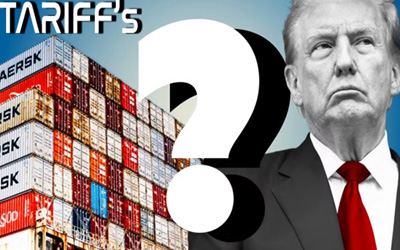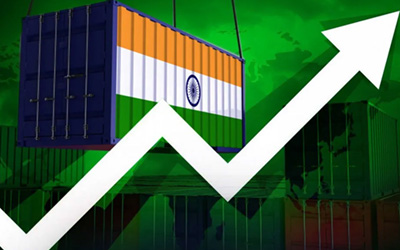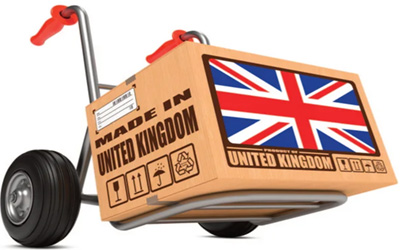The Impact of Trump’s Tariff Policies on Global Trade & Economy
Donald Trump once called the word “tariff” “the most beautiful word in the dictionary.” His approach to increasing tariffs on imports was a cornerstone of his economic strategy, aimed at safeguarding American jobs, raising tax revenue, and protecting the U.S. economy. However, the ripple effects of such policies extend far beyond American borders, influencing global trade and creating new challenges for businesses worldwide.
Trump’s Proposed Tariff Strategy
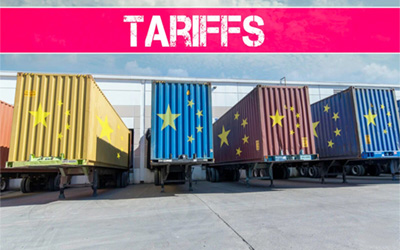 During his presidency, Trump suggested imposing a 10% to 20% tariff on all international imports. Goods from China, a key player in global manufacturing, were targeted with even higher levies ranging from 60% to 100%. Given that China contributes approximately 31.6% to global manufacturing output, such measures would have profound implications on international trade and supply chains.
During his presidency, Trump suggested imposing a 10% to 20% tariff on all international imports. Goods from China, a key player in global manufacturing, were targeted with even higher levies ranging from 60% to 100%. Given that China contributes approximately 31.6% to global manufacturing output, such measures would have profound implications on international trade and supply chains.
Trump also extended his tariff plans to include Mexico and Canada, citing concerns over illegal immigration and drug trafficking. These proposed tariffs were designed to reshape trade relationships and bolster domestic industries. However, the implications for businesses and consumers were complex and multifaceted.
Potential Impacts on U.S. Businesses and Consumers
The implementation of high tariffs could significantly disrupt the U.S. economy. Many American businesses rely on global manufacturing and supplier networks, and increased import costs would lead to higher production expenses. This, in turn, could result in:
Rising Consumer Costs: Businesses passing on increased costs to consumers could lead to cost-push inflation. As goods and services become more expensive, consumer purchasing power would diminish, potentially slowing economic growth.
Trade Flow Disruptions: Tariffs could delay production and disrupt trade flows, particularly in industries heavily dependent on imported materials.
Labour Shortages: Coupled with Trump’s stringent immigration enforcement policies, sectors like agriculture, construction, and hospitality could face labour shortages, further exacerbating production delays and increasing costs.
Global Trade Ramifications
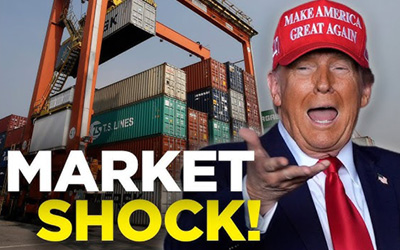 The proposed tariffs were not just a domestic issue; their international ramifications were significant. Major European automakers like Porsche, BMW, Mercedes, and Volkswagen experienced stock value declines of 5%-7% in the aftermath of Trump’s election victory, reflecting global market concerns.
The proposed tariffs were not just a domestic issue; their international ramifications were significant. Major European automakers like Porsche, BMW, Mercedes, and Volkswagen experienced stock value declines of 5%-7% in the aftermath of Trump’s election victory, reflecting global market concerns.
Moreover, the risk of a global trade war loomed large. The Chinese embassy emphasised that “no one will win a trade war,” while Mexico’s economic minister, Marcelo Ebrard, vowed retaliatory tariffs. Such responses underscored the interconnectedness of global trade and the potential for retaliatory measures to exacerbate economic challenges worldwide.
Implications for U.K. Businesses
For U.K. businesses, the picture was less clear. The U.S. is the U.K.’s largest trading partner, and universal tariffs could raise costs for British companies significantly. However, the shifting trade dynamics presented opportunities as well:
New Market Access: With major exporters like China seeking alternative markets, U.K. businesses might benefit from new trade opportunities.
Service-Oriented Trade Relationship: The U.K.’s trade with the U.S. is primarily service-based, which is less likely to be impacted by tariffs on goods. This focus, coupled with the historically strong “special relationship” between the two nations, could lead to favourable trade terms or even a potential free trade deal.
Challenges and Opportunities in a Changing Trade Landscape
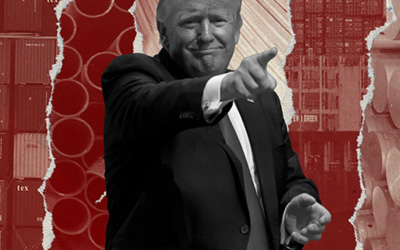 While Trump’s tariff policies aimed to protect American industries, they introduced significant challenges for businesses reliant on international supply chains. Increased costs, disrupted trade flows, and potential labour shortages posed risks to economic stability. On a global scale, the threat of a trade war highlighted the delicate balance required in international trade negotiations.
While Trump’s tariff policies aimed to protect American industries, they introduced significant challenges for businesses reliant on international supply chains. Increased costs, disrupted trade flows, and potential labour shortages posed risks to economic stability. On a global scale, the threat of a trade war highlighted the delicate balance required in international trade negotiations.
For the U.K., the evolving trade environment offered a mix of challenges and opportunities. Strategic positioning and proactive trade agreements could help British businesses navigate the turbulent period and capitalise on emerging opportunities.
Conclusion
Trump tariffs policies marked a significant shift in U.S. trade strategy, emphasising protection and domestic growth. While these measures aimed to boost the American economy, their ripple effects on global trade, consumer costs, and business operations were far-reaching. For international businesses and trading partners like the U.K., adaptability and strategic planning were essential to navigating the changing landscape.
As the world’s largest economy adjusted to new trade policies, the global market braced for a period of uncertainty, underscoring the interconnected nature of modern commerce and the importance of balanced trade relations.
SARR Logistics UK
SARR Logistics UK the ultimate logistics partner for all your freight forwarding and supply chain needs. By using a professional logistics freight forwarding company you gain peace of mind that we are using the best forwarders in the business. If you would like to talk please Contact us and let us guide you through your journey safely.


